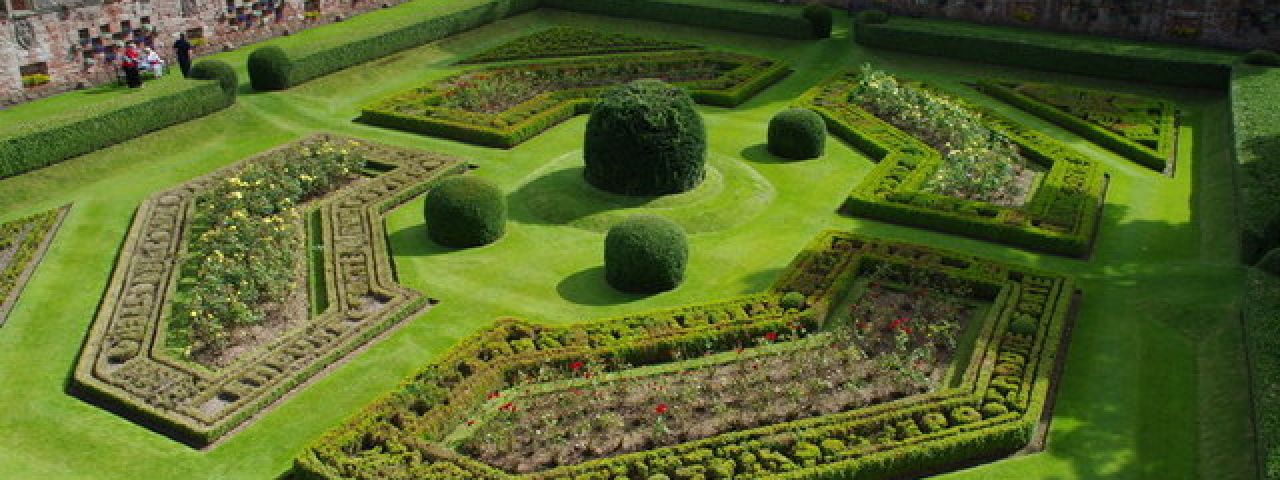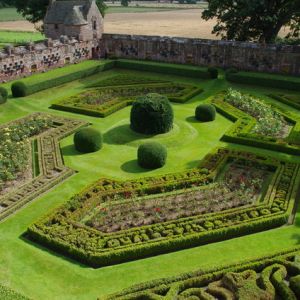Edzell Castle and Garden
Sightseeing attraction | Brechin | Scotland | United Kingdom
Historic ruin from the 16th century
Edzell Castle and Garden is a historic ruin from the 16th century, located approximately 8 kilometers north of Brechin in Angus, Scotland. The castle was the seat of the Lindsay family, who acquired the property in 1358. The current structure was built around 1520 by David Lindsay, the 9th Earl of Crawford, and later expanded by his son, Sir David Lindsay.
Renaissance garden in Scotland
Architecture and Layout
The castle consists of an original tower house and adjoining buildings enclosing a courtyard. The buildings are made of red sandstone and reflect late medieval architecture. Although the site was never used for military purposes, it served as a prestigious country residence for the Lindsays.
Building of the Lindsay family
The Walled Garden
Of particular note is the Renaissance garden, established in 1604 by Sir David Lindsay. This walled garden, also known as a "pleasaunce," is unique in Scotland. The walls are adorned with intricate reliefs depicting virtues, vices, and heraldry. Within the garden are decorative hedges shaped like the Scottish thistle, English rose, and French fleur-de-lis. Additionally, the Lindsay family mottos, "Dum Spiro Spero" and "Endure Forte," are incorporated into the planting.
Explore Scottish Renaissance architecture
Historical Significance
Edzell Castle was a hub of social life and hosted numerous important guests. The design of the castle and garden reflects the cultural and intellectual aspirations of the Lindsay family. After facing financial difficulties, the property was sold in 1715 and gradually fell into disrepair. In the 1930s, it came under state care and is now managed by Historic Environment Scotland.
Restoration works at Edzell Castle
Current Condition
Currently, Edzell Castle is closed due to restoration works and is expected to reopen in the summer of 2025. Visitors will then be able to explore the castle ruins and the restored Renaissance garden, offering a glimpse into the splendor of bygone eras.




























































































































































































